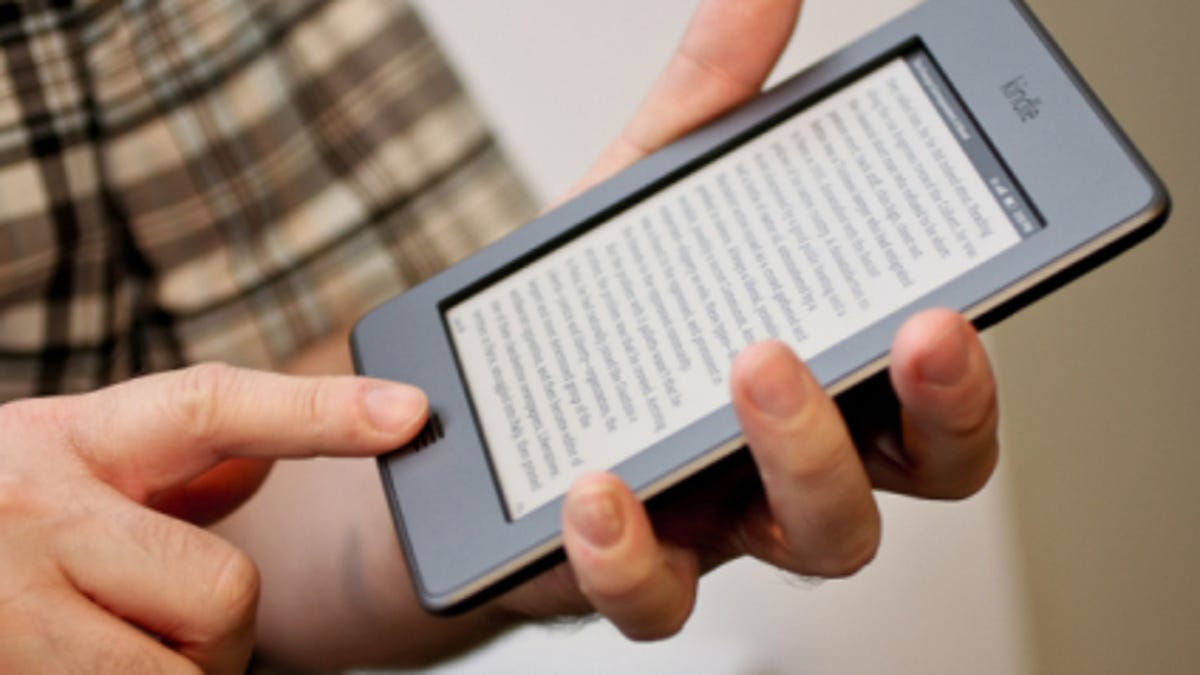So how much is a fair price to pay for an e-book?
This issue is going nuclear and a <i>lot</i> of people believe that charging $10 or more for the portability and convenience of an e-book is ridiculous.

Remember how much money e-readers were supposed to save book buyers? It was among the big reasons why 20 million Americans decided to take the plunge.
So why is it that consumers are still paying through the nose for e-book titles that ought to cost a fraction of the price charged for the used hardcover version?
A lot of readers fuming over that question reminded me of their frustration in the aftermath of the latest flare-up between Amazon and the publishing industry. On Wednesday, more than 4,000 e-titles sold by Independent Publishers Group, one of the nation's biggest independent book distributors, got pulled by Amazon as the result of a dispute over pricing. IPG's Kindlecontract was up for renewal and Amazon sought to extract more favorable margins. IPG refused to cave and so, the impasse.
This constitutes the newest chapter in an old struggle over e-book pricing. For years, publishers had left the discounting decisions in the hands of retailers. Then Steve Jobs came knocking. Apple's CEO wanted to make sure that iPad owners would have an alternative to buying e-books through Amazon and in 2010 he offered an intriguing idea that he said would benefit the book publishing industry.
The specter of an increasingly powerful Amazon already loomed on the horizon. And while the publishers wanted to sell new hardcover titles at higher prices, Amazon, keen to sell more Kindles, was heavily discounting e-book titles, sometimes even at a loss. Explaining why the publishers would do better to change their business model, Jobs, as always, was the beneficiary of superb timing. From Walter Isaacson's authorized biography:
"We told the publishers 'We'll go to the agency model, where you set the price, and we get our 30 percent, and yes, the customer pays a little more, but that's what you want anyway,'" Isaacson quotes Jobs as saying. "But we also asked for a guarantee that if anybody else is selling the books cheaper than we are, then we can sell them at the lower price too. So they went to Amazon and said, 'You're going to sign an agency contract or we're not going to give you the books.'"
The pitch worked. Henceforth, book publishers, not the retailers, would call the shots.
Was this in the best interests of consumers? The Justice Department is asking that very same question. While the EU presses a separate investigation the DOJ has opened a probe. A representative for the department declined comment other than to confirm that the "investigation is ongoing."
While they wait for trustbusters on both sides of the Atlantic to finish their investigations, book publishers are desperate to hold the line. But they also face another challenge to their newly imposed discount regime: It's only a matter of time before Amazon fully outgrows its origins as a middleman.
It's already part of the way there. The company wants to become a full-fledged book publisher. It's opened publishing offices on both coasts and has signed a clutch of exclusive deals with best-selling author Timothy Ferriss and e-book publisher RosettaBooks. It also recently acquired 450 children's titles--probably not the last such deal it pursues.
Vox Populi
No such ambiguity about assigning blame on the part of Kindle customers. They've already figured this one out.
"I buy many books each month from Amazon for my Kindle Fire," a reader named John Spellman wrote me. "The price of some books is ridiculous. $14.99 for a download when the same book, hardcover, is available from Book of the Month Club for $9.95. I stopped buying hardcover because I have no space to store books. The rip-off by publishers is sickening. I personally feel that no e-book should be more than $10. I am pleased that Amazon is challenging the price gougers."
It's a common refrain sounded by readers noting that while the marginal cost for selling an extra digital download is near zero, book publishers frequently price the digital versions only a few dollars below the hard-cover price.
"There is absolutely no reason for higher pricing on digital books," a reader posted in one of the CNET News talkback forums. "It's not like the author with a traditional publishing contract is making more money on digital media, even though they should be. This is simply about the publishing industry trying to make huge profits on digital copies that they have very little overhead for. It's no wonder so many authors are self-publishing their digital books and raking in 70 percent of the sales to boot. That's waaaay more money than they'd ever get from a traditional publishing contract. Even better, the author gets to control the rights to their own catalog of titles when they self-publish."
The amen corner will nod its assent, but the question remains: how much is a fair price to pay for an e-book? The boilerplate answer--whatever the market will bear--will not suffice. You can forget about the textbook definitions because this issue is going nuclear. A lot of people believe that charging $10 or more for the portability and convenience of an e-book is ridiculous. The book publishers haven't helped their cause by doing a poor job explaining their case. If they're not careful, they risk getting Napsterized. Though piracy has already started, it hasn't become rife. At least not yet.
If it comes down to Amazon and the DOJ on one side against Apple and the book publishers on the other, guess which side the book lovers will be rooting for?

